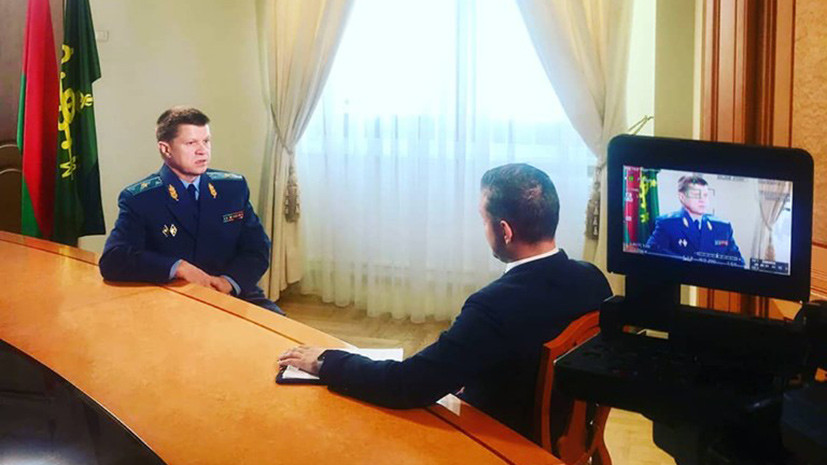The Customs Service of Belarus, together with the State Security Committee (KGB) of the country, revealed a scheme for the illegal transfer of weapons from Ukraine to Russia. This was told by the chairman of the Belarusian State Customs Committee (SCC) Yuri Senko.
“Together with the KGB, we worked out information that weapons were transported from Belarus to Ukraine in parts in Lithuania, and from there, in larger quantities, we were already moving to Russia. As far as we have information, in the Russian Federation subsequently, upon completion of this special operation, a large number of weapons were revealed, ”the official said in an interview with Belarus 1.
According to him, on the territory of Russia the special services seized "a whole arsenal" of various types of weapons.
“These are machine guns, and pistols, and small arms in the form of rifles, and this is a large quantity, about 9 thousand, of ammunition,” Senko added.
At the beginning of September, President of Belarus Alexander Lukashenko stated that the Belarusian side had completely closed the border with Ukraine, as a “stream of weapons surged” from there.
“We had to close the border tightly with our brothers and relatives, even more than with the North Atlantic bloc,” the head of the republic said during a speech in Minsk at an international high-level conference on combating terrorism using innovative approaches.
According to him, when the weapon is in the hands of "ordinary people and especially nationalist-minded people, wait for terrorism." This threat is due to the strengthening of customs control.
It is worth noting that, according to the State Border Committee of Belarus, in 2018, more than 800 ammunition and 76 weapons were seized on the border with Ukraine.
In connection with the growth of smuggling, President Lukashenko called for an increase in the number of border guards in the country.
“Given the increase in negative factors associated with illegal migration, drug trafficking, smuggling (especially weapons), the State Border Committee has been tasked with increasing the required staffing,” the head of state said in February 2019.
- Yuri Senko
- © CustomsRB
However, the Ukrainian authorities are clearly not seeking to combat smuggling, as political analyst and economist Alexander Dudchak told RT, but, on the contrary, they themselves take part in it.
“The business associated with the arms trade during the current conflict in the Donbass has become very profitable. In addition, judging by the documents, after the fires in Ukrainian warehouses, a lot of weapons were "disposed of". But Ukraine used to trade arms both legally and illegally, it was no secret to anyone. In general, this is a natural process, how much such a process can generally be called natural. The Ukrainian authorities have no desire to wage an active struggle against this, especially when it is possible to make money on it, ”the expert believes.
Drug trafficking
During the interview, the head of the Belarusian State Customs Committee also noted that amid an increase in the number of people crossing the border, the number of attempts to smuggle “narcotic and psychotropic substances” through it has also increased. According to the facts of drug trafficking in Belarus, 129 criminal cases have been instituted over the past, he stressed.
“What is characteristic is that the quantity of drugs is four times more by weight than in the same period last year: almost 626 kilograms were seized against 155 last year,” Senko said.
At the same time, the head of the committee indicated that 615 kg of the seized narcotic drugs out of 626 were intended for recipients in Russia. They were "imported by Russian couriers for further transit through the territory of the Republic of Belarus," he said. Thus, Belarusian customs protects not only its citizens, but also all citizens of the Eurasian Economic Union, Senko concluded.
In September, Kommersant reported that under the new program of economic integration between Russia and Belarus, customs and energy policies would be combined until 2021. In the field of customs, in particular, it is planned to carry out joint raids and introduce a common information system.

